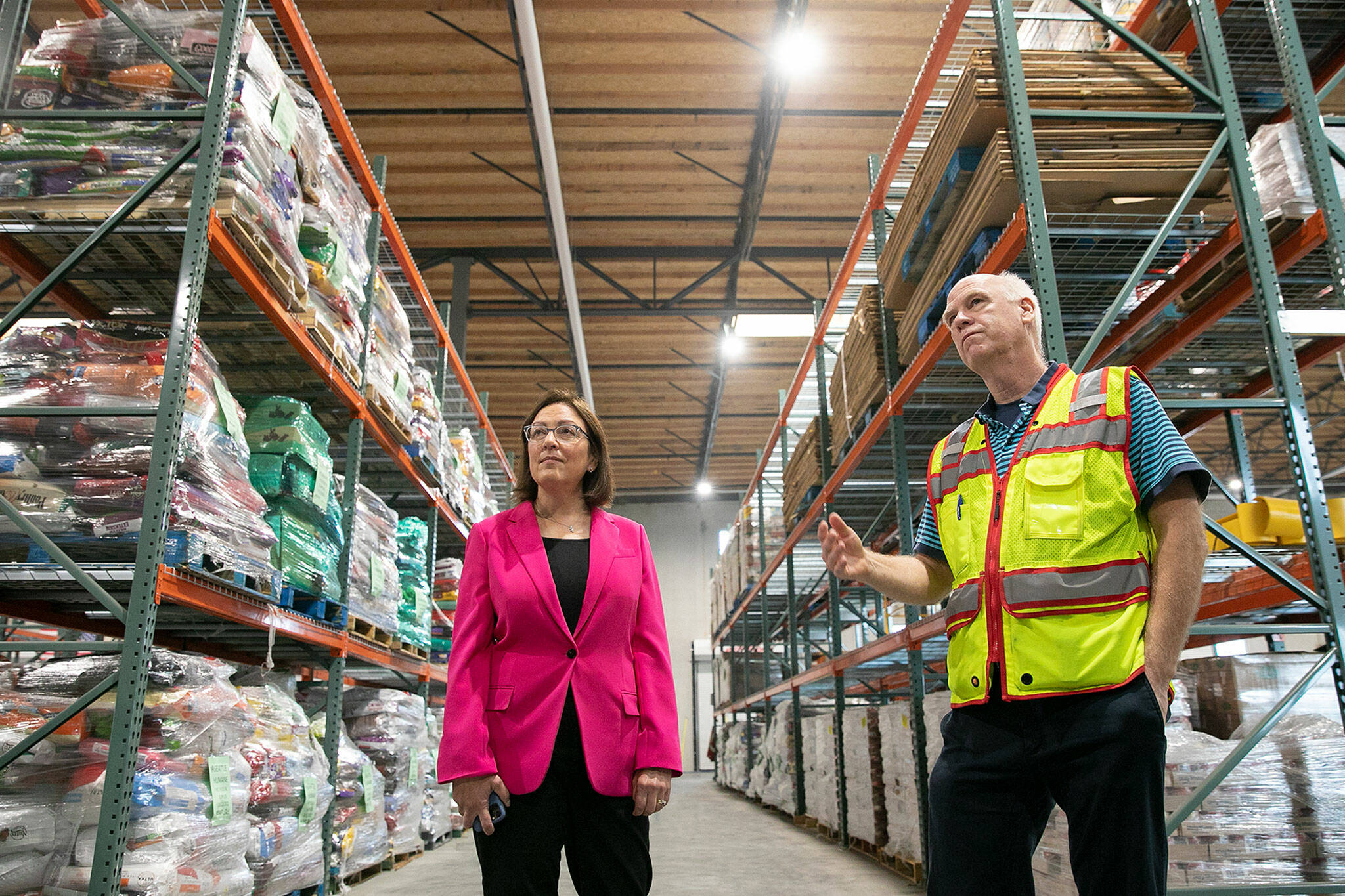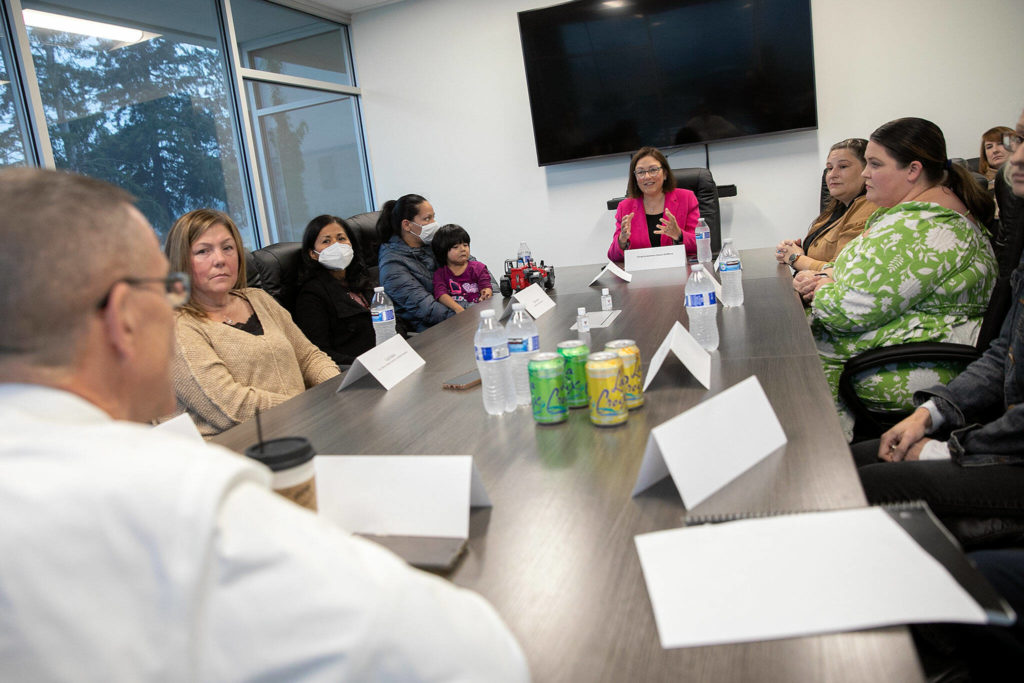ARLINGTON — A nationwide baby formula shortage sent parents scrambling this spring, with many turning to online networks or enlisting family and friends to scour grocery store shelves.
Since then, the crisis has eased, but formula supply remains tight and many products pricey.
On Thursday, U.S. Rep. Suzan DelBene, D-Medina, met with leaders of Snohomish County food banks and nonprofits, as well as local parents, to talk about these ongoing challenges at the Volunteers of America Western Washington’s distribution center.
DelBene highlighted two bills passed by Congress to increase formula supply and affordability. The first law temporarily eliminated tariffs on safe imported formulas, with the goal to reduce costs for families, DelBene said. The second bill suspended tariffs on base powders used to make infant formulas.
“There’s still a lot of work to do to make sure that we not only refill shelves, but provide that certainty that they’re gonna stay filled,” DelBene said.
The national formula out-of-stock rate fell to 61% in August, down from 86% in May, DelBene said. In Washington, the rate was 67% in August.
Carla Rankin, executive director of the Arlington Food Bank, said the availability of formula has improved.
“It’s not as much as we’d like, but it’s a little bit more,” she said.
For many, cost remains a concern.
Conrrada, a mom of three from Granite Falls, shared her challenges finding baby formula. She had to stop breastfeeding several months ago due to a medical issue, she said in Spanish through an interpreter. She asked to be identified only by her first name to protect her privacy.
Sofia Altuve, with Snohomish County Human Services, said she initially gave Conrrada formula donated from another family. When supplies ran out, the mother went to buy her own. She needed a formula called Similac Advance for her 2-month-old son.
“She’s having a struggle because it’s expensive,” Altuve said. It costs almost $20 for a small can, which lasts about three days.
Dean Johnson, director of operations for hunger prevention with Volunteers of America, said the price for the nonprofit to buy formula spiked 25% in the past eight months.
It can be difficult for babies to switch formulas. For high-risk infants, such as those with allergies or who are premature, it may not be an option at all.
“Speciality formulas have been some of the slowest to come back,” said Rebecca Mauldin, director of development and communication with ChildStrive, a nonprofit serving Snohomish and King counties.
The formula shortage became dire this spring after Abbott Nutrition shut down a major manufacturing plant in February over contamination. Abbott, which makes brands including Similac, restarted the Michigan factory in June, but had to close it again temporarily due to severe flooding.
The effects of the plant shutdown reverberated around the country, including in Snohomish County. Rankin, with the Arlington Food Bank, said the shortages particularly hit hard for families who were already struggling.
She shared a story of two clients who had 9- to 10-month old babies. One was not able to breastfeed, and the other had to supplement with formula. Both moms had to switch to whole milk due to the formula shortage. Health authorities do not recommend cow’s milk for children under age 1, due to medical risks.
“It was a really traumatic decision for them to make,” Rankin said.
Malia Mullen, executive director of Nutrition First, said the state Department of Health took an important step when it expanded the approved formulas for clients in the Women, Infants and Children nutrition program.
A challenge, however, is that just a few manufacturers control the baby formula supply.
“This monopoly on certain formulas is a huge part of what caused the crisis,” Mullen said.
DelBene said long-term solutions include boosting domestic manufacturing capacity.
Just on Wednesday, Abbott’s CEO announced a new $500 million U.S. factory for infant formulas.
Jacqueline Allison: 425-339-3434; jacqueline.allison@heraldnet.com; Twitter: @jacq_allison.
Talk to us
> Give us your news tips.
> Send us a letter to the editor.
> More Herald contact information.





























